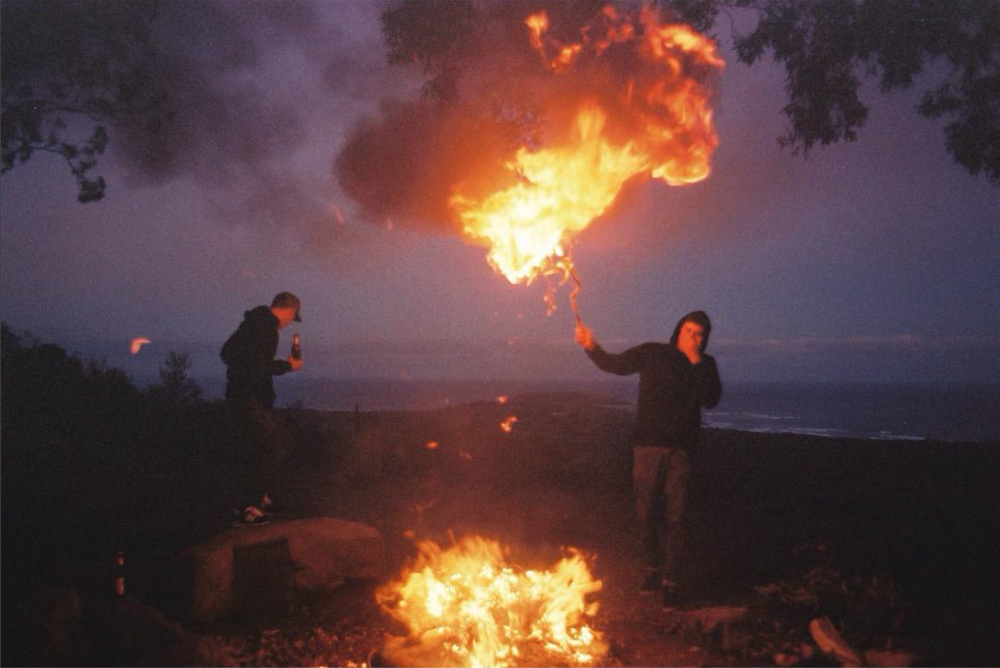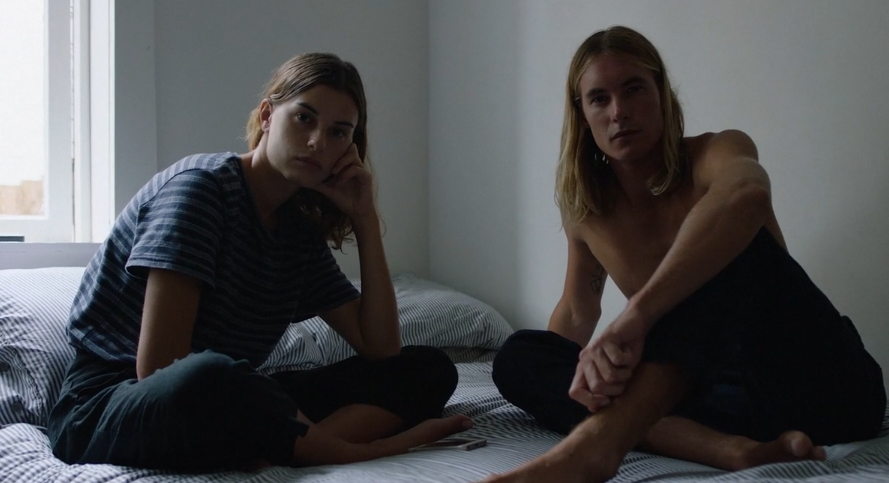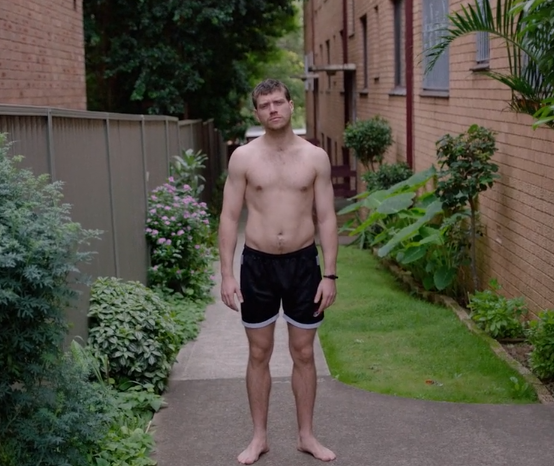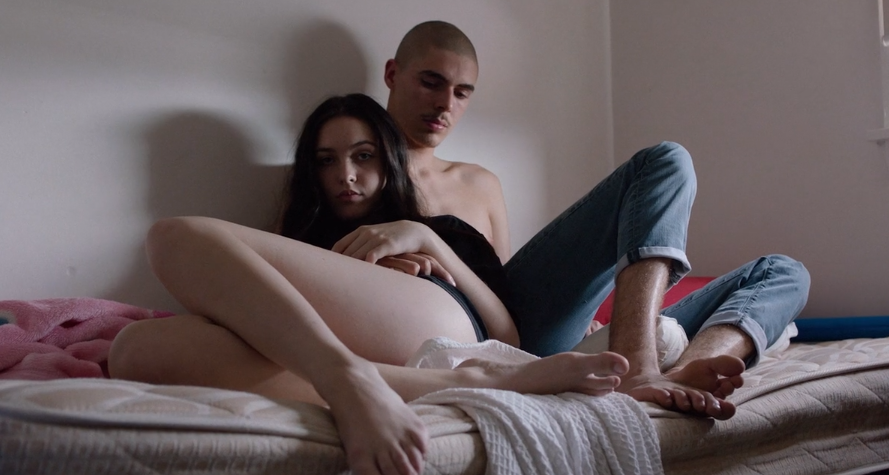
Together, Fitzgerald and his filmmaking partner and childhood best friend, Jake Hunter, make up (1331).

Field Notes Interview: Australian Filmmaker, Ben Fitzgerald
At the age of 22, Benjamin Fitzgerald has already pinpointed a feeling that most people are never quite able to put to words. Fitzgerald and his film partner and childhood best friend, Jake Hunter, struck a chord in the hearts of many with with their short film and Vimeo Staff Pick, Portraits. The film displays intimate vignettes of young adults in Sydney, Australia, who are in the midst of the dreaded transition from adolescence into adulthood. While the characters differ in personality and aesthetic, each of the voiceovers describe the same overarching themes: ambivalence, uncertainty and lack of direction.
Set in the subjects’ bedrooms and soundtracked with little other than the vocalization of their deepest thoughts, Portraits exudes a magnetic vulnerability. Partially serving as a projection of the directors’ own thoughts, the film serves as a relatable personification of a universal truth: nobody really wants to grow up. We spoke with Benjamin Fitzgerald about filmmaking, the creative process and the story behind the fascinating film, Portraits.
Marmoset: How did you get involved with filmmaking, writing and working with your film partner, Jake?
Benjamin Fitzgerald: Jake and I have been best friends since we were 12, or younger maybe. We went to school together. We weren’t really that into film — we were huge into surfing. We live near Bondi Beach, so we’d surf everyday together. That was kind of all we did and all we focused on wanting to do. We had hopes of being professional surfers, but that didn’t work out. That’s how our friendship started. My dad is a First AD [Assistant Director] and makes commercials, so maybe when I turned 16, he used to start getting me on to jobs as background extra number 41 on a car insurance commercial, or a Schweppes commercial or whatever. Again, I didn’t kind of really take that much notice in it. I just did it because it was good money and I was 16. I was a kid and all I wanted to do was go surfing and hang out with my friends.
I was not really doing that much, and then my friend Jake started getting into photography and he went to film school. He’s got very specific taste in what he likes. He had a music video project that he had to do, and he didn’t trust anyone that he was working with at film school. They were all Star Wars nerds to him, and he hit me up and was like, “Do you want to help me write and direct this music video?” It wasn’t particularly good because it was the first thing we’d done together, but it was from doing that I was like, “Wow, this is really fun to be able to create something.” That really inspired me. We did that, and then I signed up for film school pretty much straight after and he and I have been working and doing stuff together ever since.
That’s awesome. Is it a pretty collaborative experience when you guys are coming up with an idea for a new film? What does kind of the inspiration and development process look like?
It really depends. Portraits was the third thing that he and I did together, but only the second thing that came out. He’d [Jake] been at film school for a year before I had started — I’m only graduating this year. With Portraits, he’d started taking photos of a bunch of our friends, who were dudes who think they’re tough, in these really vulnerable sort of weird ways. It was an image of these people that I hadn’t seen before. I looked at it and was like, “Let’s turn this into a short documentary and we’ll just see what happens.”
From there, he will typically control the visual style. We’ll talk about that and we’ll talk about shots that we want to do. Typically, I’ll be like, “Okay to tell the story, I physically need these shots. I need this, and we have to see that,” and then he’ll come back to me with a bunch of references, and we’ll come up with a style that way. I’ll normally either write the project, depending what it is, or I’ll write the premise.
It’s so much easier having a partner that you can be like, “I’m stuck and I don’t know what to do. What do you think? We need this character to get from here to here,” or whatever, and they can be like, “Yes, that’s a good idea. I really like that,” which then helps you have more ideas because you’re like, “Yes, I’m amazing.” Or, [they] just give it to you straight and be like, “That’s terrible. Do not do that.” Working with a partner’s fantastic and we definitely work very creatively together and bounce off each other in different ways, which is cool.
In Portraits, the sound beyond the characters talking and telling their stories was pretty minimal. Was that lack of music/sound in the background intentional? How do you think that contributed to the theme of the film?
Jake and I’s ethos is there’s no point in trying to be overzealous or super ambitious when you have the budget we have, so basically we want to look at what is available to us, what can we make work, and then make that a stylistic choice. That’s why we do everything handheld and everything’s got natural sound and stuff like that, because there’s no point of us trying to do something that you would see in a Hollywood film and us do it terribly.
The idea with having the natural sound in, we just wanted to make it feel as intimate as possible, because everyone’s a real person and we’re shooting in everyone’s actual bedroom, so we wanted to make it feel super personal with the really close wide angle lens, closeups on people’s faces and doing the voice service through recording off loudspeaker on a phone. We wanted to make it feel like you were really there with them and like they were opening up to you.
Who were the subjects?
Friends and mutual friends. Some people we knew really well. One of them was my girlfriend, Jake’s girlfriend was the French girl, and then some people we’ve worked with in the past, good friends of ours and a couple people who had really good looks that we wanted.
Because we knew a lot of the people, it made it so much easier for the interviewing process. It wasn’t the case with everyone, but with a lot of people, I knew things about them and I could just bring out the things that I wanted to hear or steer them in a direction that I knew they would be comfortable with. I sort of knew their insecurities already, and I could just kind of get them in the space to start talking about some stuff, which is great.
Would you say that Portraits is a reflection of how you and Jake were feeling at the time when you made it?
For me, there was definite catharsis involved. Asking the questions is almost like projecting my problems on other people, and I tried to make sure that I wasn’t the only one alone. That was one of the missions of the film — just to bring light to the fact that I am not the only one who feels terrified and doesn’t know what he’s doing.
It definitely came from my own fear of the future and struggle that I went through from ages 18 to 21, just becoming almost a completely different person. At 18 I was just a massive piece of shit, really.
In that space, there’s just such a radical change that happens in your brain where everything you know just gets flipped around and there’s these two or three years that you’re just so confused. I really wanted to bring light to that and sort of deal with my own problem that I was having with it, and make myself not feel so alone, and then hopefully make the audience not feel so alone as well.
You’ve been making films for a couple years now, how do you go about the process of finding music and how do you think music affects the films that you make?
I think music and sound, in particular, is one of the most underrated things. You can have a terrible, looking image, but if you’ve got clean sound recording, everyone just thinks, “Oh that’s a stylistic choice.” But if you have terrible dialogue recording or anything like that, as the audience you’re completely taken out. I think the same with music. If you don’t have the right music to fit the piece, a story that is told really well and shot really well with great acting can just feel completely off, with the wrong vibe and the wrong feeling, and therefore the audience isn’t sold and captivated and taken on the journey that you want them to be taken on.
As a young filmmaker, what’s been the most challenging part of your career so far?
I’m definitely as green as anything, even doing interviews or talking to anyone. I had a girl from England email me — she had to do an assignment on a director she found inspirational. I was like, “This is so weird. You don’t realize, but…I’m also at film school.” It was really cool. I guess the goal is for Jake and I is we want to put out as much high quality work as we can that’s got interesting stories and resonates with people, and that are unique and they look really good.
Right now it’s trying to come up with the unique concepts that we can do with the money that we have — which is very little — with the actors that we have available to us, which are also very little. Then trying to just deal with that sort of stuff and put out as much good, quality stuff as we possibly can.
Getting the Staff Pick was such an encouragement for us. Just being like, “Oh my God. People actually like this, and recognize it, and we’re not crazy to think this is cool.” Also wanting to prove to ourselves that we’re not just 22 year old dudes who don’t know anything. But I know that even though we’ve done some good stuff, it’s going to be a long time before we are given proper money to make something. I think you really have to earn it.
We’ve got a lot more work to do and we’ve got to show more variety, and all sorts of stuff…It’s not really about that anyway — as artists, we just want to keep doing what we love.



